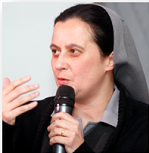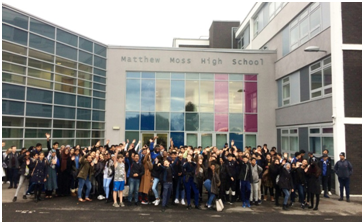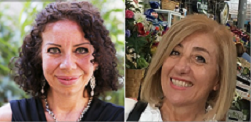back to abstracts – back to annual meeting

Mario Piacentini
|
Twenty-first century students live in a diverse, interconnected, and rapidly changing world. Local and global issues are increasingly intertwined, and intercultural encounters occur on a daily basis. This complex environment presents an opportunity and a challenge for education. Schools are called to question their role in nurturing the key competences that young people need to participate as citizens in a globalised world.
 The talk presents the OECD-PISA approach to assessing ‘global competence’.
The talk presents the OECD-PISA approach to assessing ‘global competence’.
Global competence is defined as “the capacity to examine local, global and intercultural issues, to understand and appreciate the perspectives and world views of others, to engage in open, appropriate and effective interactions with people from different cultures, and to act for collective well-being and sustainable development”.
Schools can promote global competence in multiple ways:
- providing students the opportunity to discuss complex local and global issues;
- teaching students how they can develop a fact-based and critical worldview of today;
- equipping students with an awareness of their own cultural background and with the means to analyse a broad range of cultural practices and meanings;
- engaging students in projects that let them better understand and contribute to their local communities;
- training teachers and other educational actors to promote the respect for diversity and core human rights.
PISA will undertake its first assessment of global competence across more than 50 countries in 2018. The aim of the PISA survey is to encourage a debate on the importance of broadening the scope of what is assessed and valued in education, considering a more comprehensive range of cognitive and social skills. Being able to define and measure global competence is an essential pre-condition to the integration of core citizenship skills in the curriculum.

Nùria Mirò
|
En un mundo descrito como volátil, incierto, complejo y ambiguo (VUCA), el Col•legi Montserrat responde a las grandes fuerzas del cambio del momento presente para la educación, como son la neurociencia, la globalización y la revolución digital, con un modelo de innovación que pone el corazón en la persona del alumno y que fluye en una cultura de aprendizaje más que de enseñanza.
 Con la misión de “educar el corazón y la inteligencia”, hemos repensado un curriculum que desarrolle las distintas inteligencias formuladas por Gardner, así como la competencia global, con un énfasis en la educación plurilingüe y a las experiencias de aprendizaje y servicio. La forma de interiorizar conceptos, habilidades y desarrollar competencias hacen necesarias unas metodologías activas a través de las cuales los alumnos, solos o en cooperativo, investigan, piensan, formulan retos, experimentan, crean productos o servicios relevantes, en un contexto interdisciplinar, y sienten la evaluación como un proceso necesario para conocerse, retarse y mejorarse.
Con la misión de “educar el corazón y la inteligencia”, hemos repensado un curriculum que desarrolle las distintas inteligencias formuladas por Gardner, así como la competencia global, con un énfasis en la educación plurilingüe y a las experiencias de aprendizaje y servicio. La forma de interiorizar conceptos, habilidades y desarrollar competencias hacen necesarias unas metodologías activas a través de las cuales los alumnos, solos o en cooperativo, investigan, piensan, formulan retos, experimentan, crean productos o servicios relevantes, en un contexto interdisciplinar, y sienten la evaluación como un proceso necesario para conocerse, retarse y mejorarse.
En este modelo en que se exploran nuevos roles de los docentes y de los alumnos, se hace necesaria una organización que nos facilite diseñar y reflexionar experiencias de aprendizaje juntos, así como personalizarlas, y unos espacios de aprendizaje que permitan el desarrollo de una verdadera comunidad profesional de aprendizaje en una educación del ser para la vida.

Donato Speroni
|
The 17 Sustainable Development Goals (SDGs) of the UN 2030 Agenda for Sustainable Development are not just declarations of principle, because they consist of 169 targets and almost 250 global indicators. They are neither the solution to all global problems: they simply represent the beginning of a collective journey through which the world community is committed to Sustainable Development throughout this century. Hence the importance of the role of education and of a meaningful youth engagement. We will have to cope with enormous problems such as population growth, climate change, natural resource depletion . New answers will be needed to the challenges of technological evolution in terms of ethical choices (man – machine relationship), social organization (work transformation), collective decision mechanisms.

We can list many possible scenarios, from those of “techno-optimists”, confident in the fact that science will find answers for all these challenges, to the “catastrophists” convinced that we have now passed the point of no return and we are facing an unprecedented crisis of civilization . It is more useful, however, to equip ourselves to face a future that we do not know, focusing primarily on the principles of resilience and of attention to vulnerability. Knowing vulnerabilities is important to avoid unforeseen crises in our environmental and socio-economic systems. Fostering resilience is needed to be able to overcome crises.
What does all this mean for school education? ASviS has translated it into the concept of “Education for sustainable development”, which the Alliance is developing with multiple initiatives. Each of the 17 goals involves a set of facts that must be known and values that must be respected, from gender equality to respect for environment, from the fight against waste to civil rights. Education for sustainable development is also a method: looking to the future without any illusion that problems can be solved by returning to a world that no longer exists, but dreaming of a utopian future with a positive vision of success for all, leaving no one behind.

Mark Moorhouse
|
Mark will address the central question of the seminar “How can we prepare ourselves for a world shaken by such unprecedented upheavals and radical uncertainties?” and consider whether the way forward is a schism with the practices of the past or an integration of old and new.
 To investigate this he will present the developmental journey of Matthew Moss High School in Rochdale, near Manchester, a school internationally recognised for its progressive practices. The school attracted the disapproval of the UK government for its new approaches to learning and had to find a way of servicing both the traditional paradigm and the imperatives of 21st century learning.
To investigate this he will present the developmental journey of Matthew Moss High School in Rochdale, near Manchester, a school internationally recognised for its progressive practices. The school attracted the disapproval of the UK government for its new approaches to learning and had to find a way of servicing both the traditional paradigm and the imperatives of 21st century learning.
Mark will reference the work of Collins and Porras in their book Built to Last and their edict that the best organisations avoid the “tyranny of or”. He will then present the work of Giles Barrow and his Five Branch approach to pedagogy:
- Liberal (Know the subject);
- Technical (Know the assessment);
- Humanistic (Know the learners);
- Progressive (Know how to let learners lead their learning);
- Radical (Know how to give learners the agency to change the world).
Mark will then describe how the framework has informed the work at Matthew Moss High School with specific reference to the school’s radical D6 provision, which operates without teachers or timetable.
He will thus attempt to demonstrate that an integration of old and new practices is a viable way forward for systems of schooling as they seek further evolution in the 21st century.

Silvia Panzavolta, Maria Guida
|
Indire, National Institute for Educational Documentation, Innovation and Research is carrying out research activities focusing on students’ personality development and attitudes, so to foster a systemic approach to competence development (Pellerey, 2004). In today’s society, characterized by socio-economic uncertainty and a “liquid life” mode (Bauman, 2006), the ability of identifying, mobilizing and applying our own personal resources is ever more important.
Both the European Council – through the updating of the Key competence framework for lifelong learning (2018) – and the US P21 Framework (2009) – released with the objective of defining the essential competencies to succeed in 21st century society – highlight the importance of developing entrepreneurship, active citizenship and social skills. Furthermore, the OECD work on ILE (Innovative Learning Environments) recommends that the school engage students considering metacognitive, motivational and emotional aspects in order to enhance deep and durable learning outcomes.
The abilities to collaborate – defined as the disposition to learn with and from others – to think creatively and critically, and to solve problems are considered to be crucial even for entering the work environment. In this scenario, we are going to present the research project MLTV Making Learning and Thinking Visible designed and implemented with Project Zero – Harvard Graduate School of Education, within the Avanguardie Educative Movement, especially for secondary schools. The project aims to transformational change not only as for teaching and learning practices but for school culture as well. Educating to listen to other, to participate democratically, to perform accountability, and to share the educational responsibility with the school community are some of the core values at the center of this proposal. In order to perform those objectives, Thinking Routines and group learning are crucial constructs, empowered with the practice of documentation to make learning visible.



